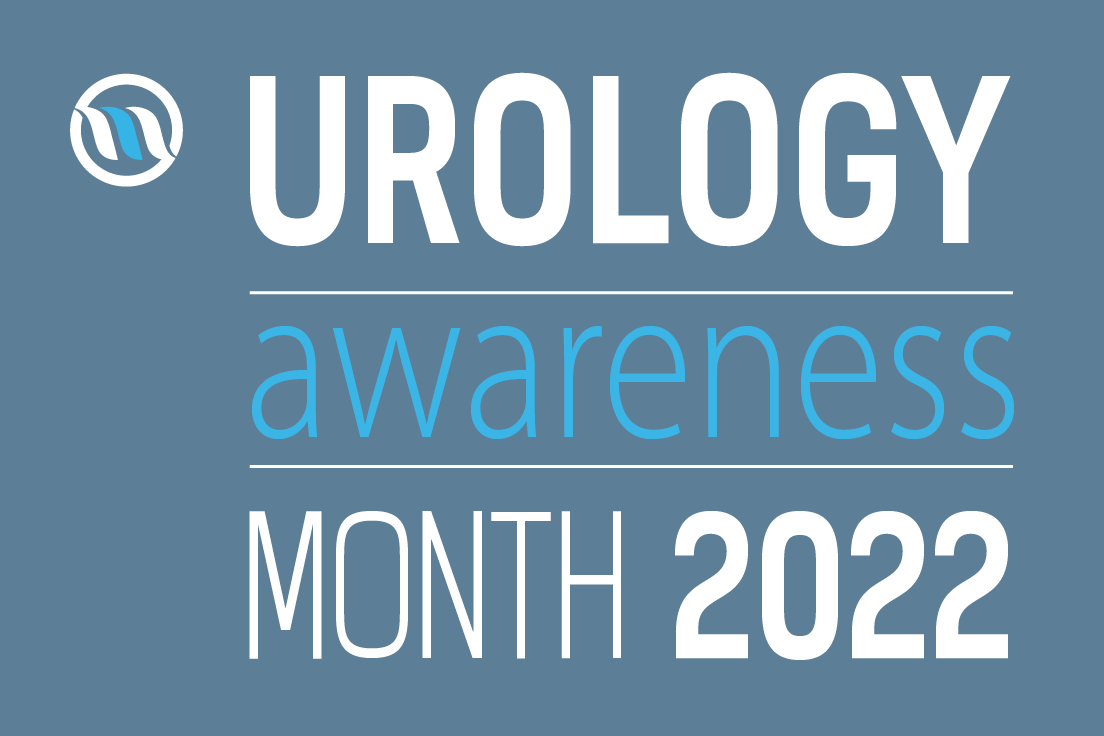
Urology Awareness Month 2022
Today marks the first day of Urology Awareness Month 2022. Urology Awareness Month is an annual initiative to raise awareness of urological diseases including prostate, bladder, kidney and male reproductive cancers and non-malignant conditions including incontinence, urinary tract infections (UTIs), erectile dysfunction and kidney stones.
The Urology Foundation is the brains behind the initiative. Launched in 2014, the annual month-long discussion around urological health aims to remove the stigma associated with urology and bladder health and allow those affected to feel comfortable reaching out to their healthcare professional for treatment and support.
What to look out for.
When it comes to bladder and urological health, it’s important to know what you are looking for. In most cases, changes in your urine output or flow will be due to something minor, but if it is a symptom of something more serious like bladder cancer or prostate cancer, getting medical help early is essential.
#1 Blood in your urine
8 out of 10 people with bladder cancer have some blood in their urine. The blood can be bright red or a dark brown colour. It may be there each time you empty your bladder, or you may only notice it one time. Even if it is a one off, it is important to speak with your healthcare professional.
#2 Changes in how frequently you need to empty your bladder
If you notice an increase in how often you need to empty your bladder, it is worth speaking with your healthcare professional. An increase in urination could be down to a change in diet, lifestyle or medication, but it’s better to have this checked to rule out bladder or other urological conditions.
#3 Having difficulty urinating or a weaker than normal flow
Any obvious changes to how you urinate is important to discuss with your healthcare professional. Having difficulty starting the flow of urine or finding the flow to be weaker than normal, these are things you should be discussing with a healthcare professional.
#4 Unable to hold urine or leaking urine
Being able to hold urine until you reach a toilet is something most of us take for granted. If you find you are struggling to hold your urine for a reasonable amount of time without leaking or what you would consider normal for you, you should discuss this with a healthcare professional.
#5 Pain or burning while urinating
If you experience any discomfort while emptying your bladder, this can be pain in your tummy area, within the urethra or where the urine exits your body, you need to speak with your healthcare professional.
#6 Lower back pain to either side
Speak with your healthcare professional if you experience any pain in your lower back to either side. This can be a dull aching pain or a sharp pain that comes on suddenly. It may be there continuously or come and go. Keep a note of when you feel the pain and its location as this may be related to your kidneys and your healthcare professional will ask for this information .
#7 Getting up more frequently in the night to urinate
Everyone is different, some people can sleep the entire night through without needing to get up, some people are up 2-3 times per night. It’s important to speak with your healthcare professional if you notice a change in what is normal for you.
You may also want to speak with your healthcare professional if you are finding your normal 2-3 trips to the toilet in the night is no longer manageable, there may be simple lifestyle changes that can help reduce the number of times you are needing to get up in the night, improving the quality and quantity of sleep you are getting.
#8 Generally feeling unwell or not yourself
We truly believe that “you know best” when it comes to your health and wellbeing. If you feel unwell or that something isn’t quite right, speak with your healthcare professional. Whether it’s a general feeling of unease or discomfort, or a specific symptom, it is always worth speaking with a healthcare professional.
Nothing to be embarrassed about
The aim of Urology Awareness Month is to draw attention to urological health and encourage people experiencing any of the symptoms listed above to reach out to their healthcare professional.
We know talking about urination and toilet habits can be uncomfortable for some. You have the right to request a male or female practitioner if that would make you feel more comfortable discussing personal symptoms, or request to have an initial appointment over the phone to discuss what you been experiencing.
Know that what you discuss with your healthcare professional is confidential and they will not pass judgement on anything you discuss. They are there to help and guide you to the best possible treatment or management plan for your needs.

